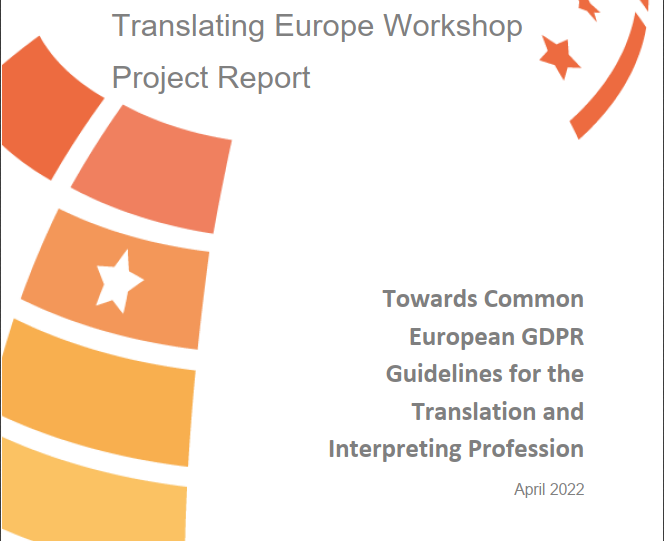Newly-published project report from the Translating Europe Workshop Towards Common European GDPR Guidelines for the Translation and Interpreting Profession sheds light on grey areas of GDPR implementation and compliance in the language services industry.
The General Data Protection Regulation (GDPR) came into force in 2018, but the T&I sector in particular has suffered from a lack of consistent application and implementation of the GDPR, resulting from grey areas around compliance, and inconsistent guidance from national data protection authorities.
Project Leaders Stefanie Bogaerts, President of the FreeLING Foundation, and John O’Shea, Chairperson of FIT Europe, comment on the European GDPR landscape:
“In the T&I sector, the presence of personal data in translated and interpreted content poses unique challenges. Personal data in this type of content is not structured, but ad hoc, almost incidental, and as such challenging to process in a consistent, safe manner. What is more, clients are often unaware or ignorant of their obligations towards safe processing of personal data in the content they send for translation or interpreted content.”
Funded by the European Commission Directorate-General for Translation, the Translating Europe Workshop is the first step towards common European GDPR guidelines for the translation and interpreting profession. It encompasses the work of a panel of legal and T&I sector experts (including CEO of IURIDICO – Wojciech Wołoszyk), an all-day online workshop with T&I professionals, and this summary report.
The TEW GDPR report outlines key challenges in the implementation and compliance of the GDPR in the translation and interpreting profession, explored and analysed by the pan-European panel of experts.
The report explores six specific areas of interest:
- Types of personal data handled in the T&I sector
- Language Service Providers’ roles as data controllers and processors
- Contractual agreements between controllers and processors
- The use of sub-processors in the T&I sector
- Issues and solutions around data retention
- Identifying, analysing, and mitigating risks
LINK TO DOWNLOAD THE REPORT: DOWNLOAD





